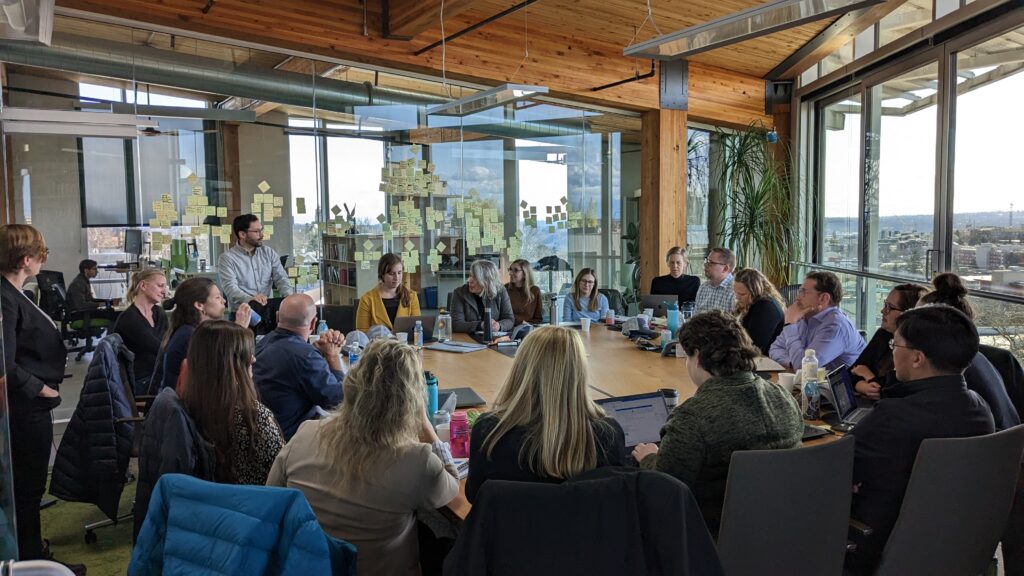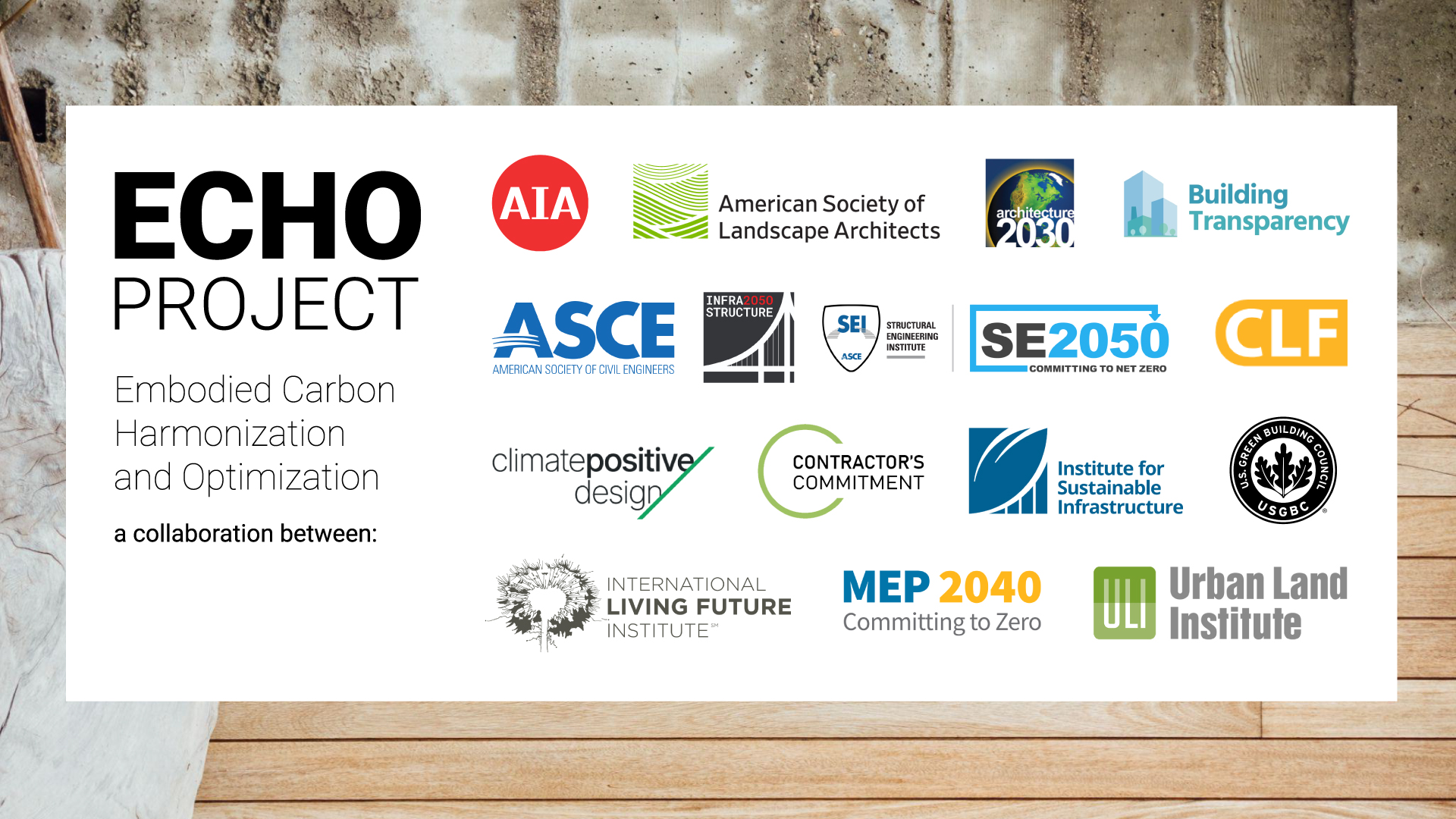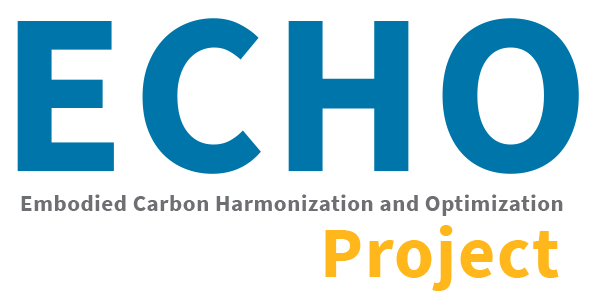A group of built environment industry groups and movement leaders is proud to share a new collaborative initiative — the Embodied Carbon Harmonization and Optimization (ECHO) Project — to tackle the challenge to rapidly reduce embodied carbon in built environments by ensuring that all embodied carbon reporting at the whole building and whole project scale (including landscapes and infrastructure) in the US follow the same clear definitions and scopes of included impacts.

ECHO planning meeting on March 14, 2023 at the Bullitt Center in Seattle
CLF will lead the coordination and facilitation of the ECHO Project as it enters its second phase going forward into 2024, taking on the role after a successful launch led by Architecture 2030. The ECHO Project intends to continue meeting to further define scopes and accounting practices for embodied carbon in the built environment, as well as to discuss future projects including the potential for joint participation in a central data repository of whole project embodied carbon data points for building and infrastructure projects, to assist in policy making and standards setting efforts.
First drafts of the North American Minimum Project Embodied Carbon Reporting Framework V1.0 and the data reporting schema are being shared with partners, and we expect to publish public-facing resources in early 2024.

On September 26, 2023, the ECHO coalition announced a key milestone in their alignment work on embodied carbon reporting. The group agreed to a first draft entitled, The North American Minimum Project Embodied Carbon Reporting Framework V1.0. The document outlined these draft requirements and is now being shared with partners. We expect to publish public-facing resources in early 2024. The ECHO project is also completing a data reporting schema to ensure that all organizations (standards-setting organizations, professional commitment organizations and others) use the same data schema for databases and digital tools to gather and share whole building/project embodied carbon data in the same way.
The initial scope of reporting requirements is narrow in focus, as it represents the minimum areas where consensus is already reached across ECHO. This framework will evolve and expand over time. The organizations involved are encouraged by this step towards clarity, alignment and collaborative action to advance the rapid transformation of the built environment towards a decarbonized future.
